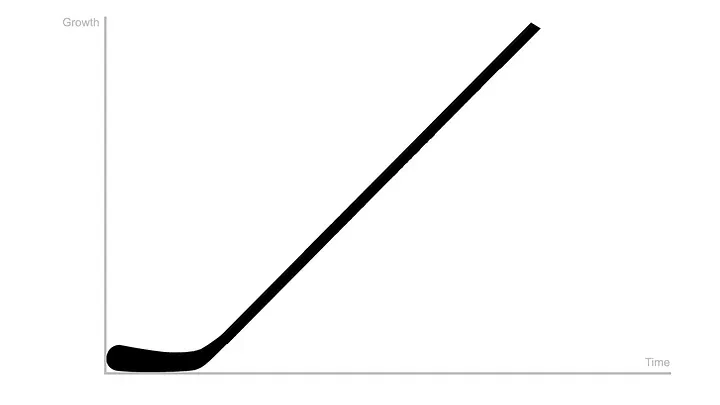Personal Agency After Several Decades of Exponential Tech

AI, biotechnology, and nanotechnology, are reshaping the way we live, work, and interact. They are advancing at a rapid pace, often doubling in capability while decreasing in cost, leading to paradigm shifts in both the personal and the nation-state spheres. How will these changes impact our lives and economies over the next few decades?
GDP
GDP measures the value of goods and services produced within a country. As exponential technology eventually trivializes production, GDP might become a less indicative measure of a nation's well-being. Instead, metrics like Gross National Wellness, which would incorporate societal happiness, health, education, and personal agency, may gain prominence.
Economy
Exponential technology will eventually allow anyone to create whatever they want. We already have plenty of examples today: 3D printing, laser cutters, no-code app development, and biohacking to name just a few. The notion of scarcity - a fundamental economic principle - could diminish or nearly vanish. What will happen to the practice of consumption then? What will happen to economy in the absence of consumption? What I think will happen is that our notion of currency changes (again), and economies adapt with those changes.
Currency is so ingrained in our species that for the foreseeable future it is not going anywhere. But what we use as currency has changed throughout human history, and it will continue to change. In an age of abundance and vast personal agency, what will currency look like? It seems to me that currency evolves into something entirely virtual, possibly based on one's reputation or maybe some other metric. I just don't see fiat currency, or even digital currency retaining meaning in a future where abundance is commonplace.
Income
As we find more and more ways to employ automation and AI, there will be an increased focus on roles that require human creativity, empathy, and intuition. Those areas are difficult or impossible to outsource from humanity. Therefore people might engage more in fields like art, entertainment, counseling, and personal services.
Ownership
Land
Land is one of humanity's most prized assets. Historically, its value was tied to agriculture, housing, and natural resources. However, as technology advances exponentially, we might need to challenge these age-old assumptions.
With advancements in biotechnology, we might soon be able to synthesize most of our foods. Techniques like cellular agriculture can produce meat without animals. Ultimately we're talking about the average person being able to print and/or (extremely) rapidly grow their food.
Traditional farming can be space-intensive and susceptible to climate change. Vertical farms, often housed in urban environments, utilize aeroponics or hydroponics to grow food more efficiently. This could significantly reduce our dependency on vast farmlands.
Housing
Materials science could lead to houses that are lightweight, self-assembling, or even mobile. Imagine homes that can float, fly, or be transported easily.
With research into underwater habitats and airships, we might not be restricted to land for housing in the future. Ocean colonization, while ambitious, is a real possibility. Similarly, hovering or tethered habitats could become a reality.
The growing popularity of VR suggests that physical space might not be the only valuable real estate. People might spend significant time in virtual spaces, perhaps even valuing their virtual homes as much as or more than their physical ones. Even today we see the impact of VR: some people's physical housing is a pod and much of their time is spent in virtual reality.
National Borders
Digital nomadism is already blurring the lines of traditional work locations. As remote work becomes more widespread and countries vie for talent, borders might become less restrictive, leading to more globalized societies. As with many of the other ideas in this post, you have to sit in a quiet room by yourself for a while and THEN think about this one. When I do it seems to me the logical outcome is for national borders to soften or disappear in many places around the world.
How do we hedge for this potential future?
Be Curious
Embrace the mindset of continuous learning. As technology changes, so will job requirements. Upskilling and reskilling will be crucial.
Be Adaptable
Be open to change. Those who can quickly adapt to new technologies and societal norms will thrive in the evolving landscape.
Be Human 😉
Soft skills like communication, empathy, and creativity will be increasingly important. Cultivate these skills as they're less likely to be replicated by machines.
Be Automated
Believe it or not this does not contradict "Be Human". Automate as much as possible in your life - so that you can focus on what truly moves you. Whatever that is, it's your best hedge for the future.
Be Unlimited
Think beyond borders. The world is becoming more interconnected. Understanding diverse cultures and perspectives will be invaluable.
Be Well
Prioritize mental, physical, and emotional health. As technology permeates every aspect of life, maintaining a balance and staying grounded will be essential. Prioritize sleep. If you have not already read Matthew Walker's Why We Sleep, I highly recommend it.
Conclusion
The exponential advancement of technology is. It just is. The question is: how will you prepare today for what will come tomorrow?
I'm a software engineer. I do that (very) well. So I am well aware that these huge ideas are well outside my wheelhouse. But I am an ultra logic-based thinker, and logic tells me that some version of what I've written about is our future. I started thinking about this blog post after many hours spent talking about the future of software engineering. It became clear to me that what I was supposed to write about was the future of us all.
I do think there is a future for today's software engineer, but getting there requires the same preparations that any of us need to make: be curious, be adaptable, be human, be automated, be unlimited, and most definitely be well.
